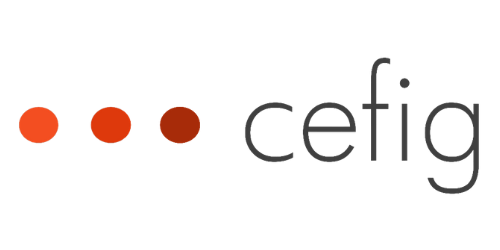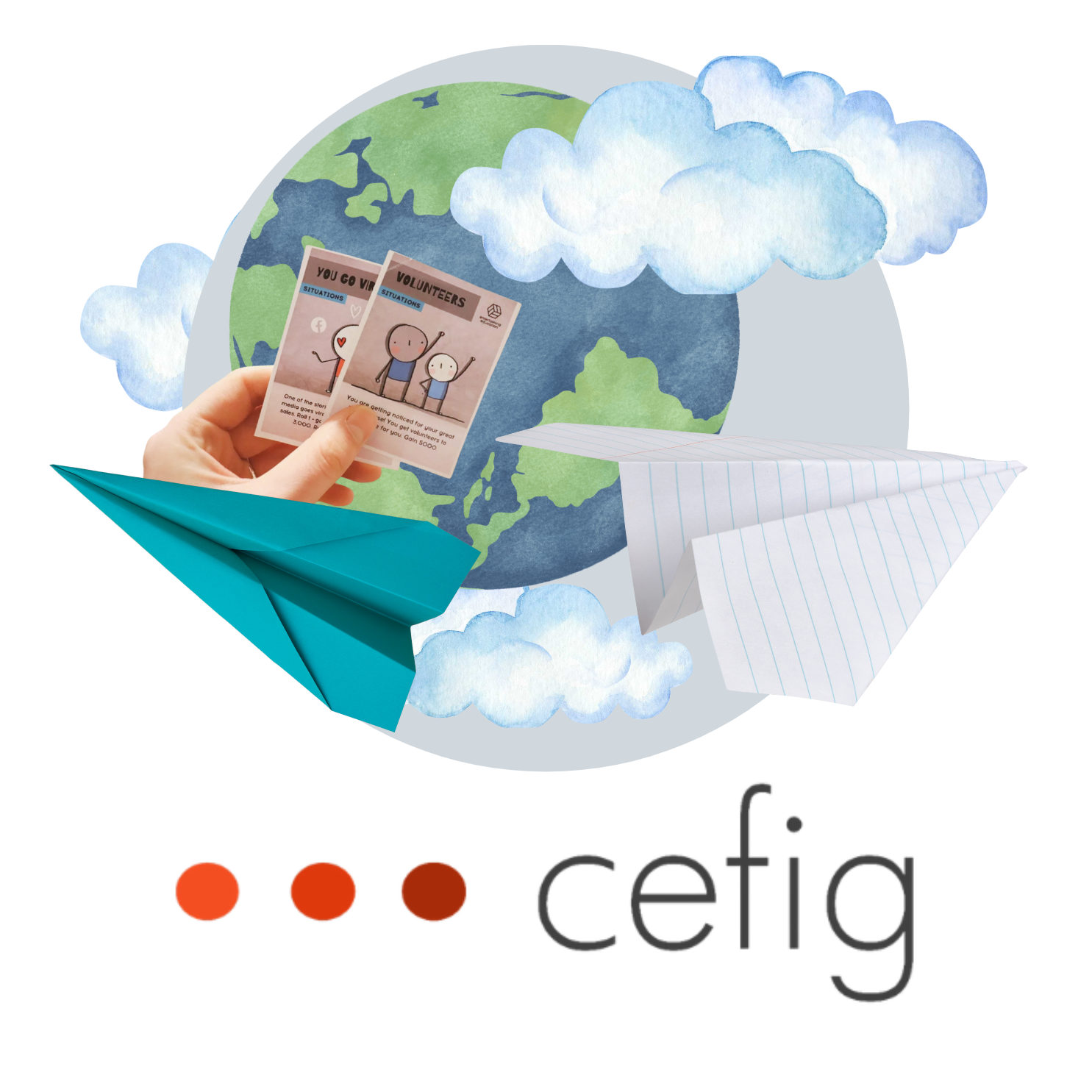Erasmus+ Training Course in Kolín, Czechia: Enhancing Media Literacy and Non-Formal Education
14/08/2024 – 23/08/2024 Kolín, Czech Republic
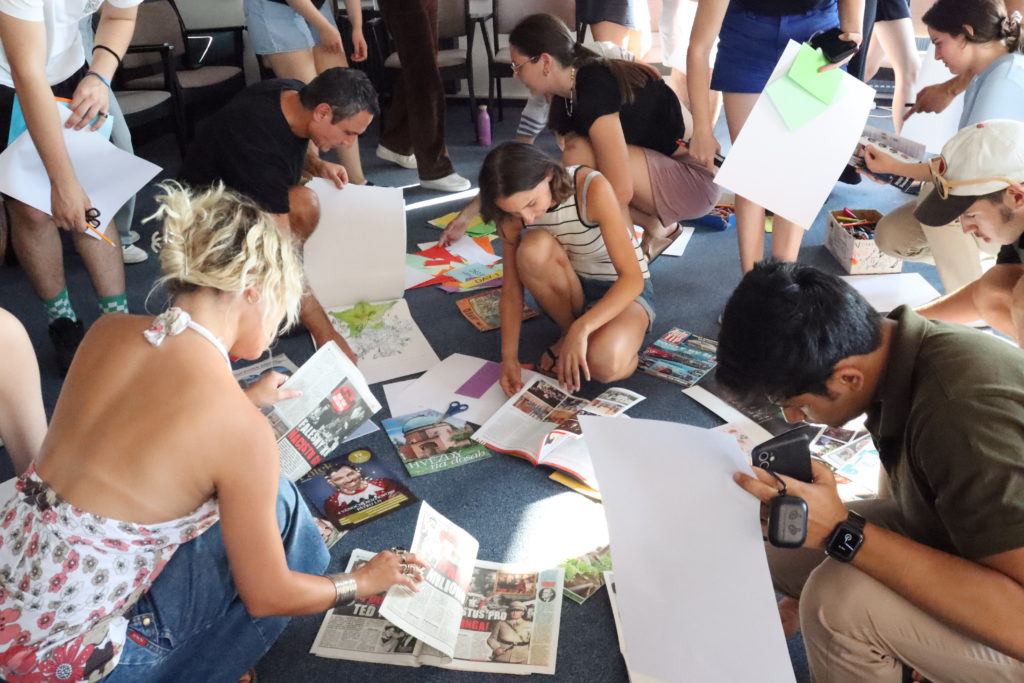
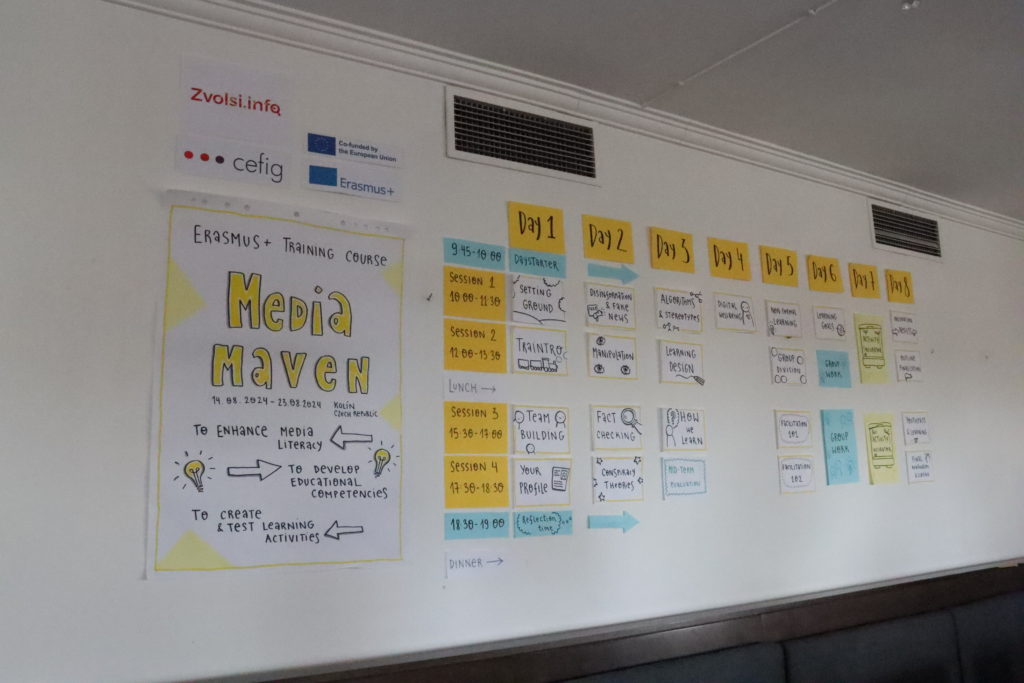
In the second half of August, the historic town of Kolín in Czechia became a hub for media literacy education, hosting an Erasmus+ training course that brought together participants from eight different European countries. Delegates from Czechia, Germany, Spain, Greece, Denmark, North Macedonia, Poland, and Malta gathered to exchange ideas and gain new skills in a project designed to empower individuals in understanding and navigating the complexities of modern media landscapes.
Objectives of the Project
The Erasmus+ project had several key objectives aimed at equipping participants with a deeper understanding of media’s impact and the tools to foster critical thinking and media literacy. These objectives included:
- Understanding the Role of Media and Information in Our Lives
With media occupying an increasingly central place in both our personal and professional lives, participants explored how information is consumed, interpreted, and manipulated. The course focused on the social, political, and cultural influences of media, encouraging individuals to become more conscious of its pervasive influence. - Identifying Deceptive Methods in Media Messages
Participants learned to recognize deceptive strategies often used in media, such as fake news, biased reporting, and the manipulation of information for political or economic gain. By identifying these techniques, they became better equipped to critically assess the media they encounter in their everyday lives. - Learning the Basics of Learning Design in Non-Formal Education
Non-formal education plays a crucial role in lifelong learning. The course introduced participants to fundamental concepts of learning design within this context, helping them understand how to effectively create educational experiences outside of traditional classroom settings. - Exploring Methods Used in Media Literacy Education
Media literacy is essential in today’s society, where information overload and misinformation are rampant. Participants explored various pedagogical methods to teach media literacy, such as workshops, digital tools, role-playing, and discussions. These methods were examined through both theory and practice, offering new ways to engage audiences in understanding media critically. - Creating, Testing, and Evaluating Learning Activities to Enhance Media Literacy
The course emphasized a hands-on approach, where participants created their own learning activities. These activities aimed to enhance media literacy by encouraging participants to test and refine their designs, receiving feedback and evaluating their effectiveness in real-world educational settings. This practical application ensured that participants left the training course with tangible tools and strategies they could implement in their own communities.
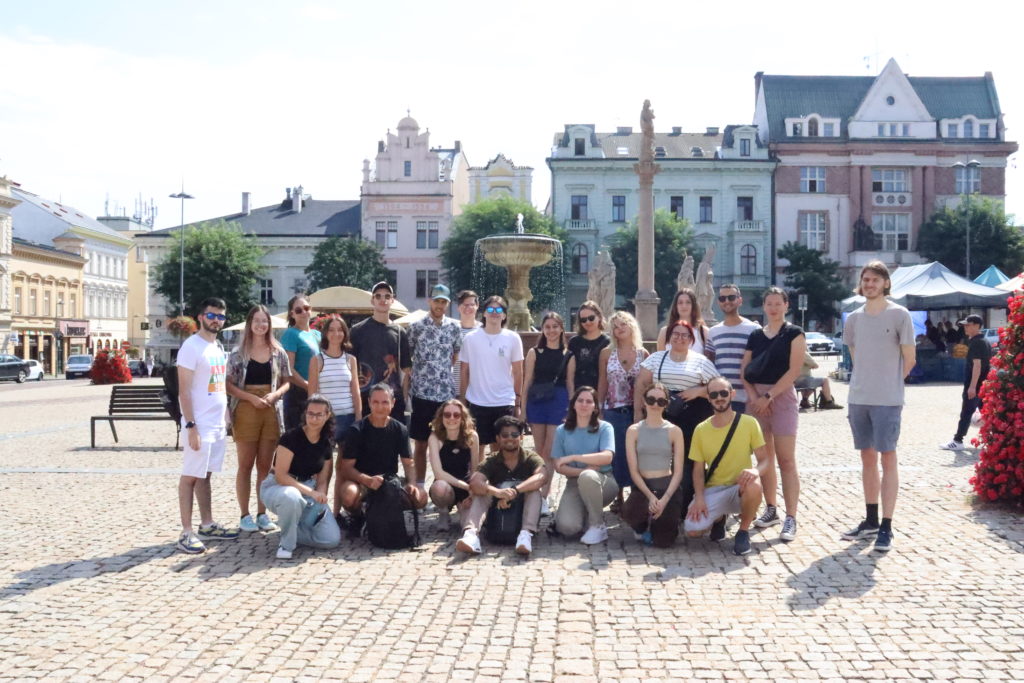
Impact and Future Potential
By the end of the training course, participants had gained a new appreciation for the role media plays in shaping our understanding of the world. With enhanced skills in media literacy and learning design, participants are now better equipped to create non-formal educational programs in their home countries. This course not only promoted critical thinking but also empowered individuals to become active contributors to their communities, capable of fostering media literacy among diverse groups.
In a world increasingly dominated by digital media and misinformation, initiatives like this Erasmus+ project are crucial in building a more informed and critical global citizenry. The impact of this training course in Kolín will undoubtedly ripple across the participating countries, as the participants bring their newfound skills back to their local contexts, paving the way for more engaged, media-literate societies.
🌎 Erasmus+ Training Course “Media Maven” is funded by the Erasmus+ Programme.

